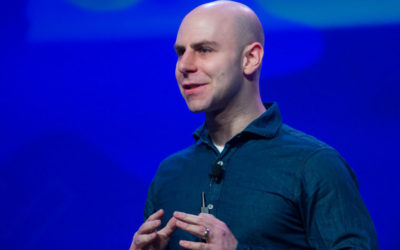You might think you have a publishing plan for your PhD but what if it’s the wrong one for you and your academic career? Academic publishing expert Simon Linacre, director of international marketing and development at Cabells, argues that being strategic is about where, how and when you publish your research – and this makes all the difference between scholarly success and failure.
This is the tale of a Taiwanese PhD student called Chen. Once upon a time, Chen decided to submit a paper to an accounting conference in Innsbruck, Austria. It was an international conference where he would meet other accounting researchers. He hoped this would help him with his research.
Chen had been a PhD student in Taiwan for nine years – that’s right, nine years. However, he had no problems with his thesis, and had completed it in the regular three-year time frame.
His problem lay in the Taiwanese system at that time, which meant that he needed to publish two articles in Web of Science-indexed journals to become a full-time academic. So he thought presenting his research and meeting other academics would help. That was his publishing strategy.
That’s when – in an idle hour between sessions – he spoke to one of the publishers in the exhibition area. It’s also when he got a surprise because that publisher told him: you’re wasting your time here; you’ve wasted the last six years; your strategy is all wrong.
I was that publisher. Here’s why I said it.
The odds are stacked
OK, so maybe I wasn’t quite as harsh as that, but the shock of meeting Chen (not his real name) meant that I could barely contain my disbelief at what he had told me.
As publisher, I knew at that at the time, there were 18 Web of Science-indexed accounting journals.
I also knew that just one of those journals accepted research from a critical research perspective – the subject of the conference he’d travelled across the world to attend.
If Chen’s plan was to get published in an indexed journal to graduate his PhD, he’d need to face some tough choices.
Either he had a one in 18 chance of publishing critical research in an indexed journal, or a 17 in 18 chance of publishing non-critical research in an indexed journal. The odds were stacked against Chen. But he didn’t even realise it.
>> Read more: How successful academic writers stay productive with Helen Sword
Strategic focus
Earlier this year, I wrote a piece for this blog on how to write an academic article that gets published. In the article I shared my six best tips on developing a successful publishing plan.
One of those tips was about ‘being strategic’, and sadly our friend Chen thought he was being strategic – by not graduating, he was able to still claim a student grant while living at home.
But being strategic about your academic career is not simply about having a plan – especially if that plan is wrong – it’s about understanding all of the surrounding context, developing knowledge and experience, identifying goals and knowing how those goals will be achieved.
The surrounding context is what I described as political in the previous blog post – and this isn’t dependent on who’s living in Downing Street or the White House.
Rather, it’s about understanding the key pivot points around which your academic career could hinge, and as such any publishing strategy requires detailed research around them.
>> Read more: Prioritize your writing – make writing matter and make it happen
How to develop a publishing strategy
- Map the specific research landscape you inhabit: Research types, most relevant keywords, top 10 authors, most cited articles, hot topics and research centres of excellence.
- Understand mandates: Which journals are acceptable to your university? What Open Access mandates are in place in your country or for your funder/institution?
- Rank what’s important: Identify the journals you want to publish in and record their performance measures in the last three years. Research Impact Factors, InCites, CiteScores, average citation per article published, difficulty of acceptance, inclusion in recommended journals at your university.
- Identify your ‘hit list’ – get a plan: Set out the most important journals in your field then develop a plan to reach them. How will you meet or contact the editors and editorial board members? How are you going to attend conferences where journal representatives and authors will attend? How will you research the areas covered by those journals and conferences?
- Get serious about time frames: Project plan writing articles using apps such as Prolifiko, build in time to ‘research your research’ to submit/revise/resubmit articles, map out three to five years’ worth of research and writing, practice ‘continuous publication’ by having several publishing projects in-flight at the same time.
>> Read more: How writing scholars write: productivity tips from the best of the best
Competitive advantage
In his article for the Harvard Business Review What is Strategy?, Michael Porter argues that; “the essence of strategy is choosing a unique and valuable position rooted in systems of activities that are much more difficult to match”.
In my experience, very few academics take a nakedly strategic approach to their publishing strategy, if they have one at all – and this impacts their academic career.
By doing so, researchers can gain a competitive advantage that is not rooted in ambition or self-aggrandisement, but simply in productivity and effectiveness. Sharing this approach in a research group will be even more rewarding.
***
Simon Linacre is director of international marketing and development at Cabells and formerly head of business, management and economics journals at Emerald Publishing. He has direct experience in journal acquisitions, open access and bibliometrics and has published in academic journals on the topics of bibliometrics and knowledge transfer. He holds masters degrees in philosophy and international business, and has global experience lecturing to researchers on publishing strategies. Simon also delivers the ALPSP Introduction to Journal Publishing training courses.




